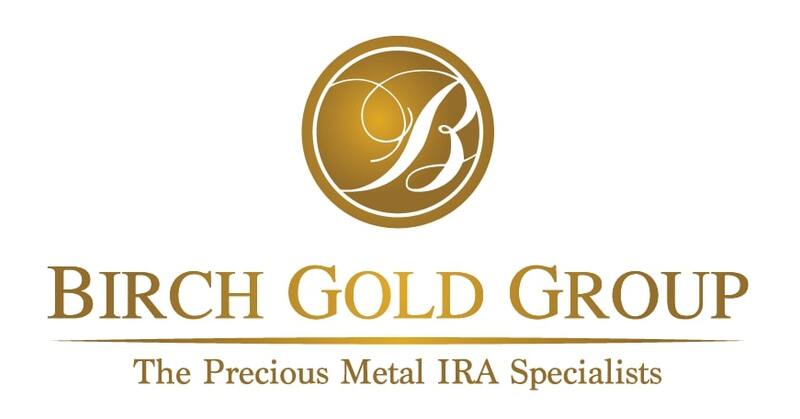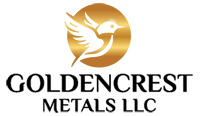Disclosure: This site is reader supported and purchases made through the links may generate a commision. Thanks for help supporting the site. Information only – not to be considered financial advice.
What if I told you one of the world’s rarest industrial metals now trades lower than most smartphones? Valued at $42.10 per gram, this critical component in clean-energy technology sits at levels not seen since 2017. Despite a 32% surge earlier this year, it remains nearly 40% below its 2022 peak – creating what some experts call a “make-or-break” moment for investors.
You’re looking at a market where wild swings have become the norm. Remember when this metal briefly outpaced gold? Today’s landscape offers fresh possibilities for those who understand its unique role in electric vehicles and emission control systems. The real question is: does this downturn signal danger or opportunity for your portfolio?
Smart investors know timing matters in precious metals. While gold often grabs headlines, industrial applications create different demand patterns here. Tools like the Gold IRA Match App help simplify these complex decisions, whether you’re diversifying with traditional options or exploring undervalued alternatives.
Key Takeaways
- Current values sit at 7-year lows despite recent gains
- Industrial uses create unique supply-demand dynamics
- Volatility requires strategic entry points
- Specialized tools help compare precious metal options
- Long-term outlook ties to green energy transitions
Understanding Palladium’s Market Landscape
Volatility isn’t just a trait—it’s the heartbeat of this industrial resource’s story. Over the past seven years, values swung from $37 to $82 per gram before settling near $42. These shifts reflect more than market whims—they’re tied to real-world supply chains and green energy demands.
Historical Patterns Tell a Chaotic Tale
Recent data reveals a 49% drop since 2021, with annual shifts exceeding 30% three times since 2022. Unlike its cousin platinum, this metal’s scarcity amplifies every production hiccup. Mining disruptions in 2022 caused inventories to tighten, pushing values upward before recent corrections.
Where the World’s Supply Originates
Two nations dominate extraction—Russia and South Africa control four-fifths of global output. With just 210 metric tons mined yearly, even minor operational delays create ripple effects. Recycled materials from old car parts provide 30% of annual needs, linking availability to auto industry cycles.
Geopolitical tensions and labor strikes have repeatedly shaken this fragile ecosystem. Savvy investors track these events closely, knowing a single mine closure could rewrite market rules overnight. Tools like specialized comparison apps help navigate these turbulent waters with real-time insights.
Best Precious Metals Companies of 2026
Three top picks to compare quickly—minimums, fees, eligible metals, and what each provider does best.
- Minimum$50,000
- Annual Fees$180
- MetalsGold, Silver
Best for: buyers who want help understanding the process before committing.
Get Free Gold IRA Kit- Minimum$10,000
- Annual Fees$180
- MetalsGold, Silver, Platinum, Palladium
Best for: a balanced mix of support, options, and simplicity.
Get Free Info Kit- Minimum$25,000
- Annual Fees$225
- MetalsGold, Silver, Platinum, Palladium
Best for: investors who want help moving an IRA/401(k) efficiently.
Request Free Info KitPalladium Price Forecast Trends and Predictions
Imagine trying to predict weather in a hurricane—that’s the challenge you face with this metal’s value. Current projections swing wildly between AI models, creating a $1,100 gap in late-2025 estimates. Even seasoned traders struggle to find solid ground here.

Year-to-Year Price Fluctuations
This year tells its own story. Q1 started at $961 per ounce, climbed to $990 in Q2, then jumped 16% to $1,154 in Q3. Yet these moves feel tame compared to AI disagreements—Claude sees $800s while Meta AI eyes $1,900 ranges.
Human forecasts paint a calmer picture. BullionVault users expect $1,076 by December 2025, aligning with LBMA’s $991 average. “The truth usually lands between human caution and machine optimism,” notes a Wall Street metals strategist.
Long-term Forecasts and Investment Implications
Your strategy needs multiple scenarios. Will supply shortages from mining regions spark rallies? Could recycling tech ease deficits? These unknowns explain why predictions vary like weather models.
Consider this—it took seven years for values to rebound after the 2008 crash. Tools like the Gold IRA Match App help you compare options without timing perfection. As one fund manager advises: “Dollar-cost averaging beats guesswork when crystal balls disagree.”
Key Factors Influencing Palladium Prices
Your investment decisions hinge on two powerful forces shaping this market. While green energy transitions grab attention, traditional industries still drive immediate value shifts. Let’s break down what really moves the needle.
Automotive Sector Demand and Catalytic Converter Use
Here’s the reality: 4 out of 5 cars rolling off assembly lines need this metal to meet emission rules. Gas-powered vehicles still dominate roads, requiring catalytic converters that use 3-7 grams each. Stricter pollution standards in emerging markets actually boost usage per vehicle – China now requires 30% more per converter than five years ago.
Electric vehicles might change the game, but not overnight. While EV sales climb to 16.7% of the market by 2025, 83% of new cars will still need traditional systems. “We’re seeing a paradoxical situation where emission rules boost demand faster than EVs reduce it,” notes a Morgan Stanley analyst.
Supply Challenges and Geopolitical Impacts
Imagine relying on two neighbors for 80% of your morning coffee – that’s the supply risk you face. Russia and South Africa’s mines face constant pressure from power shortages to labor disputes. A single South African strike in 2022 temporarily removed 15% of global output.
Sanctions and trade policies add another layer. Recent export restrictions on Russian metals created immediate price spikes last quarter. Unlike gold’s diversified sources, alternative suppliers can’t quickly fill gaps here. This creates what traders call “geopolitical premium” in every ounce.
Your strategy needs to balance these push-pull factors. Tools like real-time market trackers help spot when demand surges meet supply crunches. Remember – in this market, yesterday’s surplus can become tomorrow’s shortage overnight.
Palladium Investment Strategies and Vehicles
Building wealth with industrial metals requires choosing the right tools for your goals. Two primary paths emerge for exposure – direct ownership or financial derivatives. Each approach carries unique benefits and challenges that shape portfolio performance.

Physical Holdings vs Paper Contracts
Owning bars or coins puts the metal in your hands. You avoid counterparty risk but face storage fees and insurance costs. Reputable dealers charge 8-12% premiums over spot values – significantly higher than gold’s 3-5% markup.
Futures contracts let you bet on directional moves without physical handling. These agreements require less upfront capital but demand market timing skills. “Leverage works both ways,” warns a CME Group trader. “A 10% price drop can wipe out 50% of your position.”
Smart Portfolio Allocation Tools
Modern solutions simplify complex decisions. The Gold IRA Match App analyzes your financial profile to suggest suitable precious metal allocations. It compares 14 custodians’ fees, storage options, and buyback policies in real time.
This technology helps balance your holdings. While silver and gold dominate traditional IRAs, adding industrial metals can enhance diversification. The app’s algorithm factors in market volatility and long-term green energy trends when making recommendations.
“Physical ownership suits patient investors, while futures attract active traders. Neither approach guarantees success without proper research.”
Consider your risk tolerance before committing. Industrial metals often swing harder than traditional safe havens during economic shifts. Tools like dollar-cost averaging and position sizing help manage these wild price movements effectively.
Ready to explore your options? Find the Best Gold Company for your needs through personalized matching technology.
Find the Best Precious Metals Company to Fit your Needs
It’s all on the PreciousMetalsCentral.com list of the Best for 2026!

Insights from Industry Experts and AI Forecasts
When machines and market veterans clash, who should you trust? This metal’s future sparks heated debates between data-driven algorithms and decades of industry wisdom. Let’s examine how these perspectives shape investment strategies.
Comparative Analysis: AI Predictions vs. Human Forecasts
ChatGPT-4 Turbo suggests gradual recovery patterns, while Gemini projects wild swings between $700-$1,900. Traditional analysts like Jeffrey Christian at CPM Group counter with sobering reality checks. “Machines see patterns, but humans understand context,” he notes, predicting rangebound movement with downward pressure.
Heraeus Precious Metals bridges both worlds. Their $800-$1,200 trading window captures most projections. This practical framework helps you set realistic expectations amid conflicting signals.
Review of Forecasts from ChatGPT-4 Turbo, Gemini, and Analysts
Three critical insights emerge from recent data:
- The World Platinum Investment Council warns of 897,000-ounce surpluses by 2025
- Actual values consistently outperform conservative estimates
- AI models disagree more than traditional forecasting methods
These contradictions explain why flexibility beats conviction in this market. As one fund manager told Bloomberg:
“Treat predictions like weather reports – pack an umbrella even if they say sunshine.”
Your best move? Blend AI’s computational power with human experience. Tools like real-time dashboards help spot when machine learning patterns align with fundamental shifts. Remember – no single source holds all the answers in this complex arena.

How to Buy, Sell, and Secure Your Palladium Investments
Navigating the industrial metals market requires more than just capital—it demands smart strategies for acquisition and protection. Whether you’re new to precious metals or expanding your portfolio, these actionable steps help safeguard your assets.
Verifying Authenticity and Quality Assurance
Always demand certification when purchasing physical holdings. Reputable dealers provide assay reports confirming 99.95% purity—the industry benchmark. Third-party verification services like NGC or PMG add an extra layer of security against counterfeits.
When selling, professional assaying becomes non-negotiable. Modern testing methods including X-ray fluorescence can detect impurities invisible to the naked eye. This protects both your returns and reputation in transactions.
Storage Solutions and Secure Transaction Channels
Insured depositories offer the safest storage, with annual costs averaging 0.5-1.2% of holdings’ value. For active traders, encrypted trading platforms like BullionVault provide real-time settlement without physical handling risks.
Remember: “Your metal’s security determines its liquidity,” advises a JP Morgan commodities specialist. Pair these measures with dollar-cost averaging to smooth out market volatility. Specialized apps now streamline these processes, letting you manage purchases and storage through a single dashboard.
By combining rigorous verification with robust protection systems, you position yourself to capitalize on industrial demand shifts while minimizing exposure to fraud or loss.




